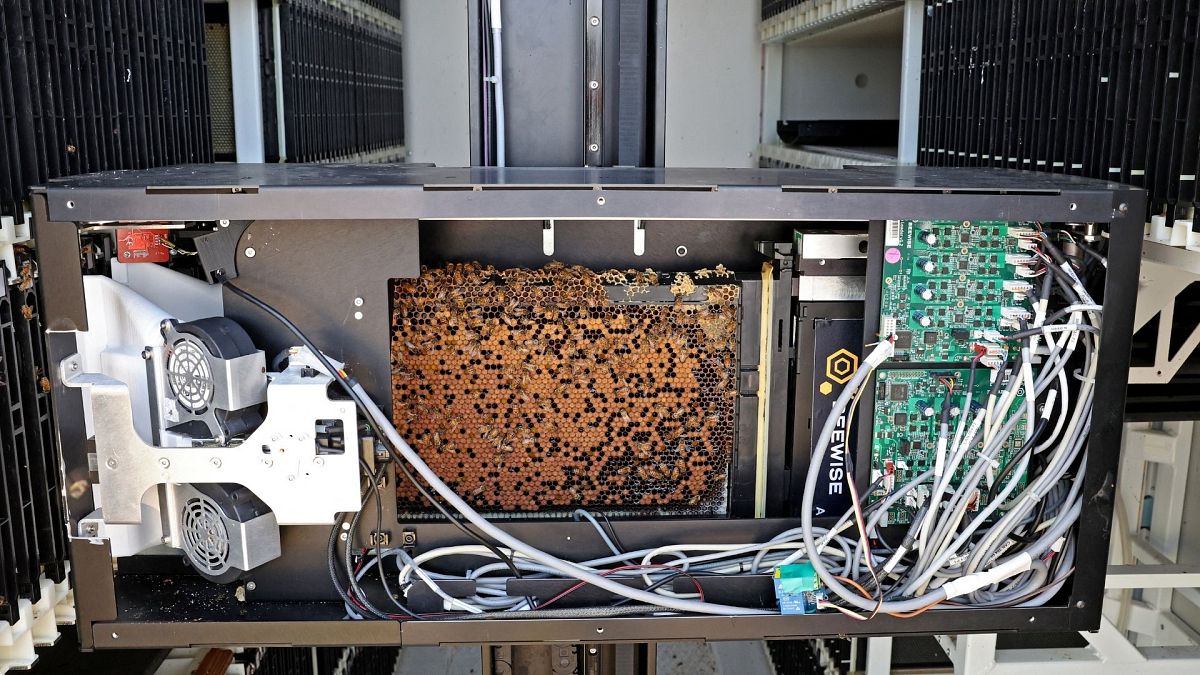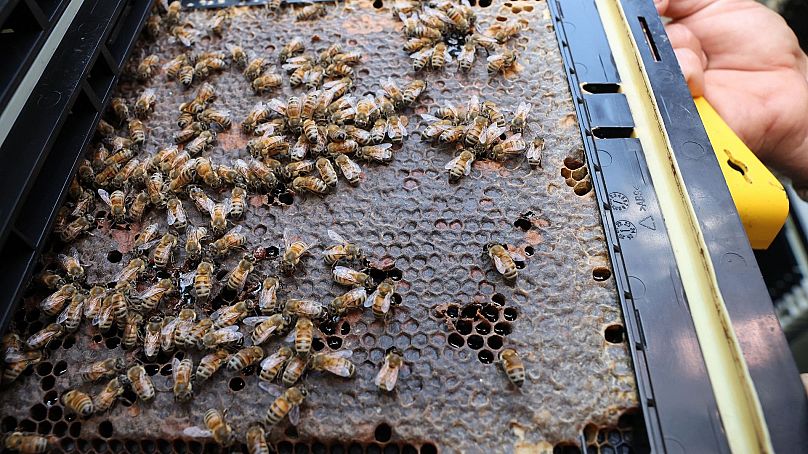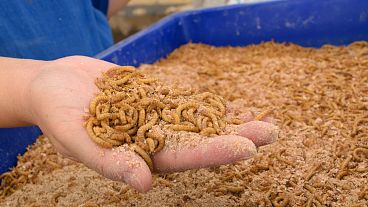A robot controls everything from the ideal temperature to honey harvesting.
"Sometimes a beekeeper takes several months to realise a problem. With the robot, it can deal with the problem in real time, this reduces the mortality of the bees."
This is a simple way of explaining the advantage of robotic beekeepers over humans. When it comes to saving bee populations, one of the most pressing issues in biodiversity, the humans at one Israeli start-up Beewise might be bees’ new heroes.
Technology is the bee's knees for keeping pollinators alive
Beewise have designed ‘Beehomes‘ - 12-square-metre containers which house 2 million bees in 24 hives.
They run on solar energy and are fitted with a 24-hour monitoring system and AI technology. “Our software knows what the bees need,” says director of operations at Beewise Netaly Harari.
The robot can automatically dispense sugar, water, medicine and even extract honey.
“[If a problem comes up], the beekeeper is alerted through an application, allowing for intervention remotely," she adds.
Why do we need to protect bees?
A significant part of our diet depends on pollination- the process by which insects help plants to reproduce.
More than 70% of crops - almost all fruit, vegetables, oilseeds and protein crops, spices, coffee and cocoa - depend very heavily on the ability of bees to pollinate plants.
"Bees and other pollinators are essential for food security and nutrition", sums up the Food and Agriculture Organization of the United Nations (FAO), which celebrates World Bee Day on May 20 to highlight the importance of their preservation.
The number of bee colonies is decreasing at an alarming rate due to habitat loss, the use of pesticides, diseases and parasites. "In Israel, between 20 and 30% of the hives disappear each year," the head of the Hebrew University's Center for Bee Studies Professor Sharoni Shafir.
What’s next for Beewise?
The start-up will produce honey from the end of May, the "first honey in the world made with artificial intelligence", says Harari.
A hundred of these robotic hives have already been deployed in Israel and a dozen in the United States. Beewise is planning to enter the European market in the next two years.
Watch the video above to learn more about this project.




